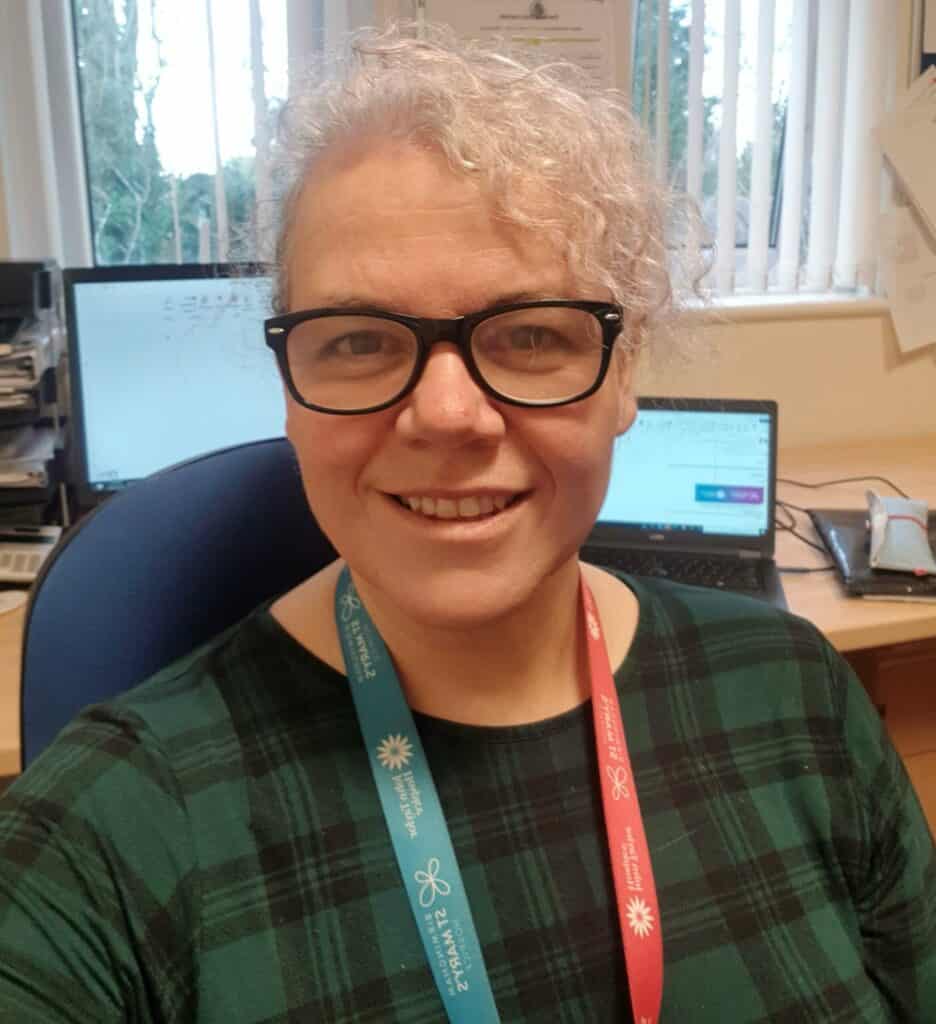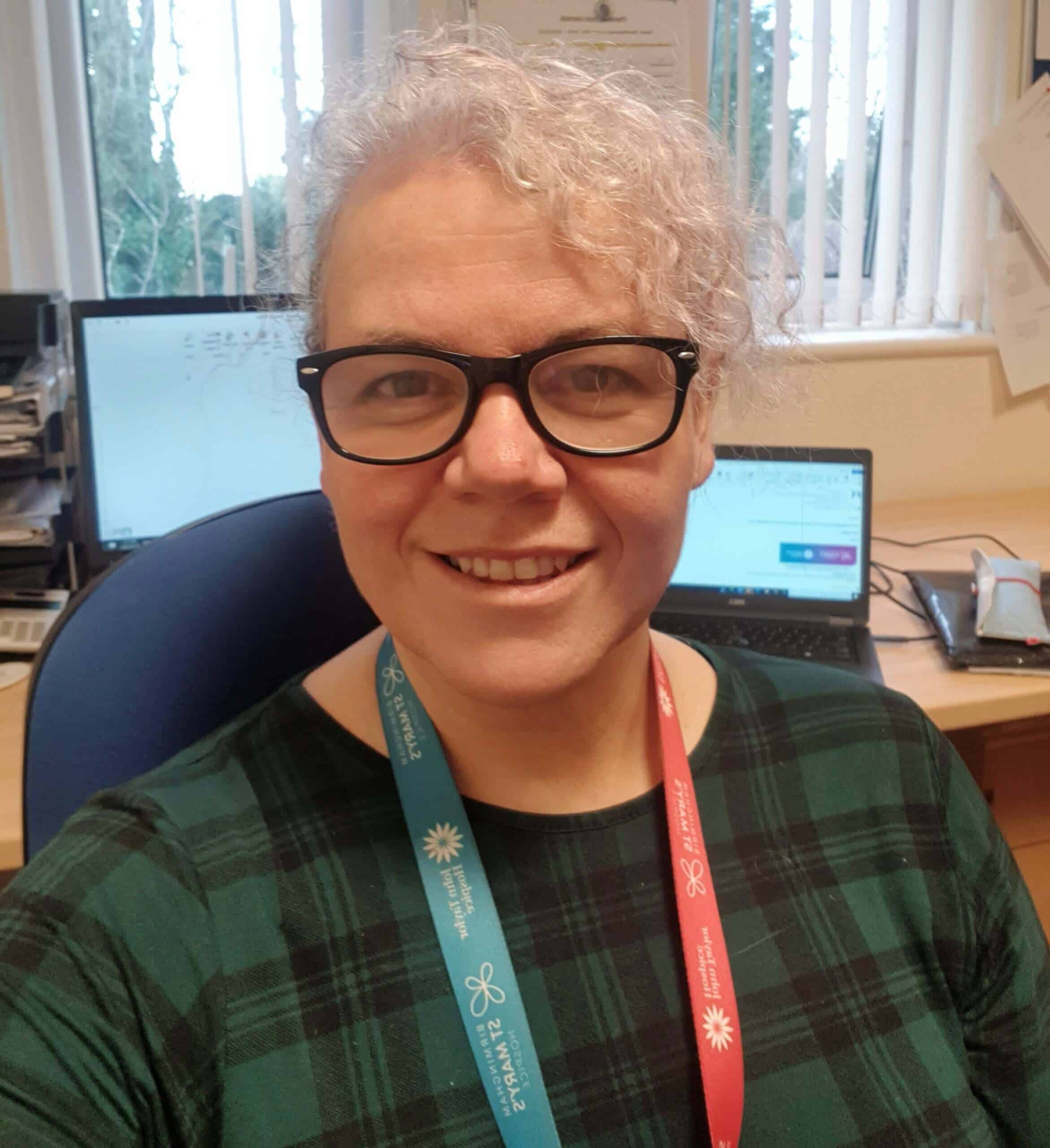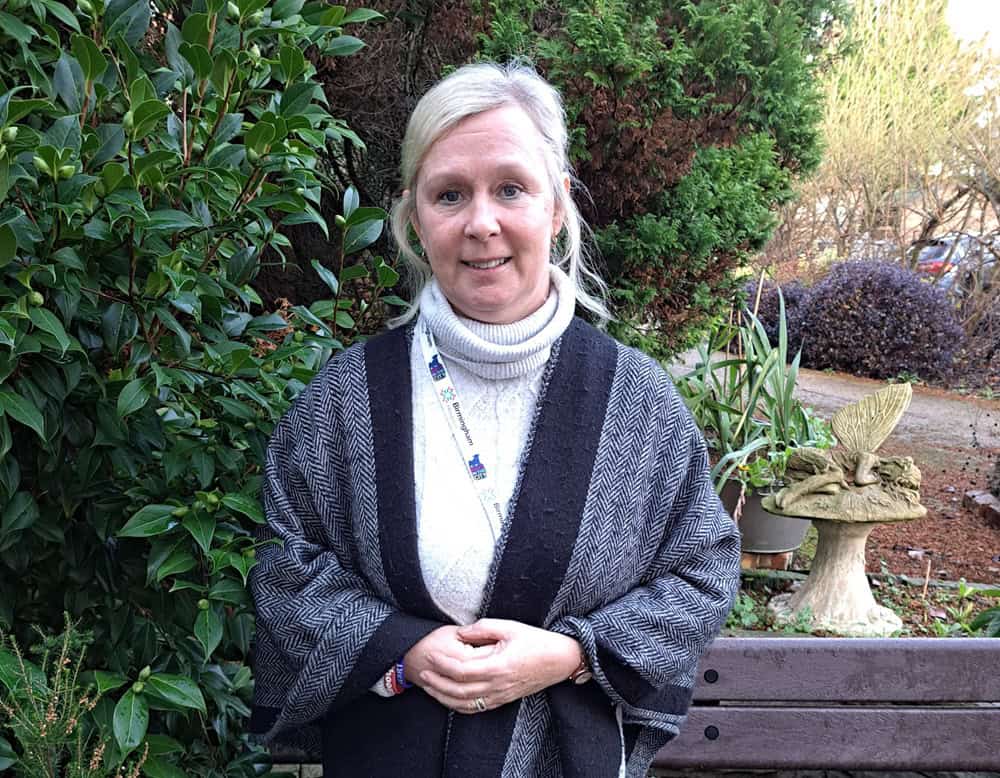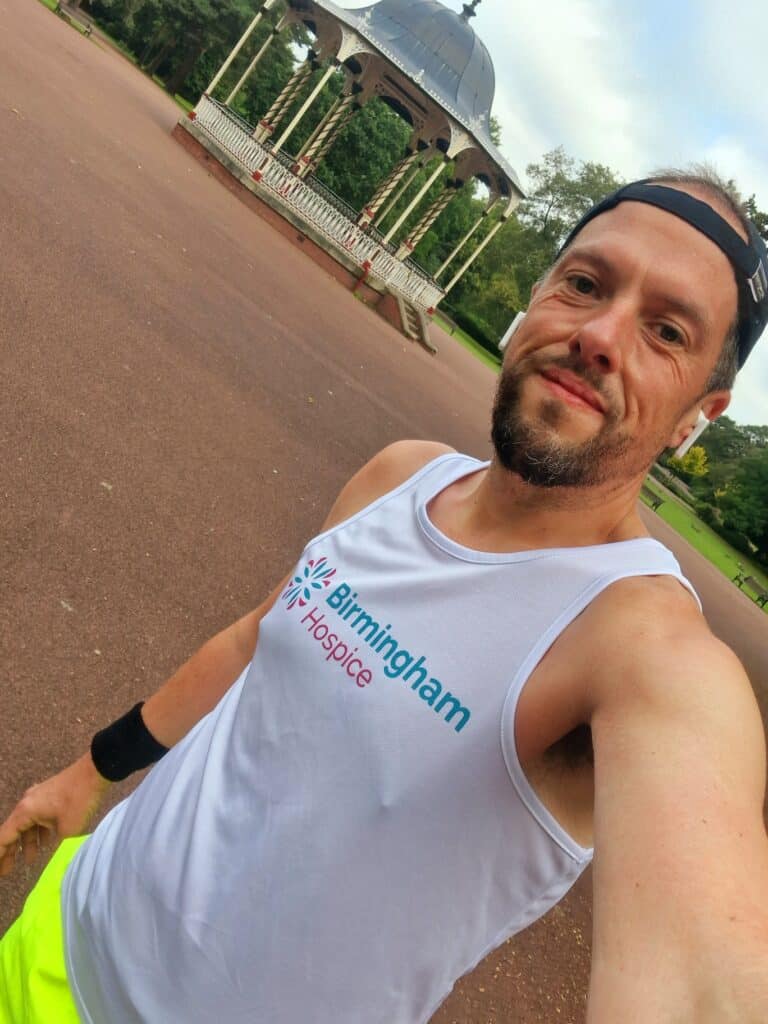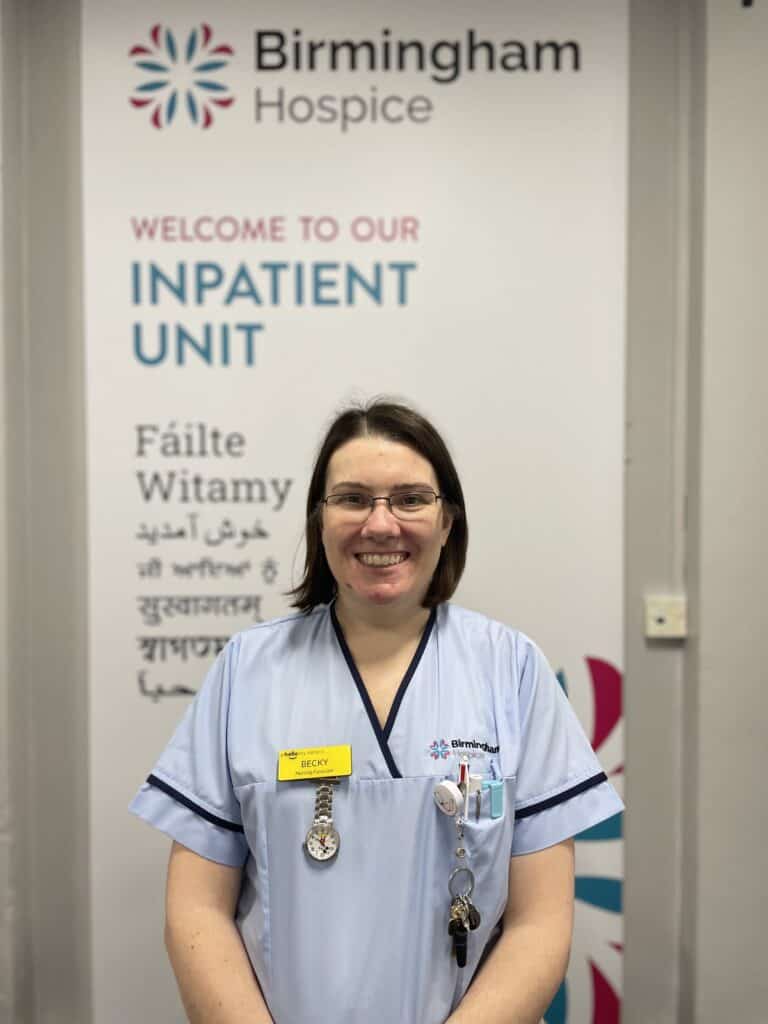Lisa Wall-Hayes joined our charity’s Pharmacy Team in 2011 – and it’s a team she’s very proud to be part of.
In celebration of International Day of Women in Science, Medicines Management Lead, Lisa Wall-Hayes, chats to us about why science is intrinsic to pharmacy, her varied role and why she loves her job.
Hi Lisa! How would you explain your role at The Hospice Charity Partnership?
I am the Lead for Medicines Management across the charity. This involves ensuring that we’re using medicines in the safest and most cost-effective way and ensuring that we have processes in place so patients get the medicines they need at the right time. Part of the job is making sure we are working within all legal, professional and regulatory frameworks where medicines are concerned. Medicines Management involves everything from procurement to the disposal of medicines – and everything in between.
What does a typical day look like for you?
It’s really varied, so the only ‘typical’ bit is that I try to plan out a half hour at the start of the day to look at the priorities for the day. This includes catching up on emails and checking the daily NHS/NICE updates over my drug of choice, coffee! My day can change quickly if one of the team is off, so making sure that the Inpatient Units at both hospice sites have pharmacy cover is a priority. If needed, I actually still get to do some Pharmacy Technician jobs on the ward which is really what I love. This involves checking all the patients’ medication charts and ensuring they have everything they need.
On admission to the ward, I would reconcile any new patient’s medication and find out what they are taking, what they aren’t taking, and any allergies or concerns. We check each patient’s drug chart every day and so does the Pharmacist. When things change or the patient goes home, we are involved with the discharge process, ensuring their medication is ready to go when they are. In palliative care, time is really important.
Most of my routine work is more office-based these days, investigating incidents, ensuring we have policies and procedures in place, and that we audit the work that we do. I particularly enjoy any new service improvement projects and supporting Medicines Management training for clinicians.
How long have you worked in pharmacy?
I have worked in pharmacy for 34 years in lots of different roles and different sectors. I’ve been really lucky to have had some interesting jobs.
What do you enjoy most about working in the Pharmacy Team?
The team itself is fantastic. We have a small team and they are all so supportive. They all just do what needs doing for the patient.
Why is a Pharmacist so important in supporting people’s overall health?
Pharmacists train for the same amount of time as a Doctor does their basic training for – just on medicines. This means they have a huge amount of knowledge. Our Pharmacists are also prescribers and can give expert advice on medicines and symptoms of illness as well as prescribing them. This ensures fast access to the medicines that people need. Your average Community Pharmacist will be able to give advice on all sorts of health issues and often that will save a trip to the GP.
Do you face any challenges with day-to-day tasks?
The usual challenges that affect almost everyone in healthcare; time and resources. But, after working through a global pandemic, I think we can handle most things!
Are you a trained Pharmacist?
No. I’m a Pharmacy Technician by profession.
Have you thought about training to become a Pharmacist?
It has crossed my mind and I have been asked over the years if I would consider it, but I actually find that the role of a Pharmacy Technician really suits my skills and I enjoy the job. We are now registered professionals and over the years the Technicians’ role has extended and I have had the opportunity to develop in other ways professionally.
What attracted you to a pharmacy role?
Initially I saw an interesting opportunity for a job in a local pharmacy which offered the training after a year, so I saw it had potential to be a good career.
How varied is a job in pharmacy?
Hugely varied, there are so many different types of roles. Pharmacy Teams work in your local chemist, hospitals, GP surgeries, care homes, mental health units, prisons, the military, pharmaceutical companies, quality assurance, procurement, IT, aseptic production, and research and management to name only some. Pharmacy input is involved in every medical speciality I can think of.
Why is science so important in pharmacy?
Pharmacy is based on scientific discoveries and research of the past and future. What we do today in health is to offer evidence-based medicine and treatment. Medicines research and critical review is needed to ensure safety and prevent harm. As a pharmacy professional a decent understanding of chemistry, biology and mathematics are really key.
Would you recommend pharmacy as a career to other women?
Yes, definitely. There are so many opportunities within the pharmacy professions and whether you go to university and become a Pharmacist or train as a Pharmacy Technician, there are opportunities available.
